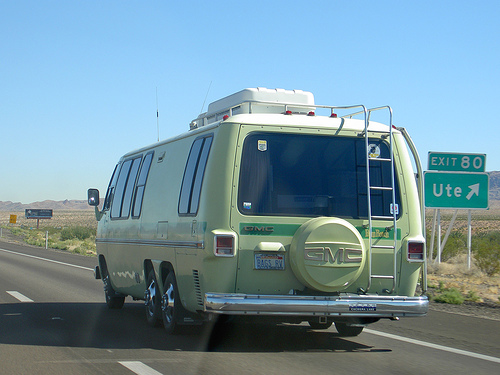Motor homes, such as the RV, are very eco-friendly forms of housing and traveling because these automobiles are prefabricated and small. In fact, a number of RV companies are going green by using lightweight mainstream products, unconventional towables, and composite materials. If you are thinking of using your RV in an eco-friendly way, this article can provide you with important tips.
Is Using RV Eco-Friendly?
The assembly line construction of recreational vehicles- as well as other mobile homes, uses less energy and it also creates less waste than regular vehicle and home construction. You have to understand that these vehicles are usually smaller; thus, it takes less energy to heat and cool. In addition, more and more RV companies are creating ultralight RVs by making use of different construction methods and materials, and cutting down heavier materials and appliances.
Another factor that makes RVs eco-friendly is their fuel consumption. Since the cost of fuel continue to fluctuate, more people are looking for smaller and more fuel-efficient tow vehicles. With that said, many companies are offering smaller and more aerodynamic RVs. This means that the vehicles they produce consume less fuel.
Going On A Road Trip Without Massive Carbon Footprint
An eco-friendly RV is manufactured using green building materials. It also uses sustainable and renewable energy, and it is fuel- and energy- efficient. With that said, traveling by RV means traveling without leaving behind massive carbon footprint. To go on a road trip without ruining the environment, you must choose an eco-friendly RV or upgrade your current RV so that it becomes as eco-friendly as possible. Here are a few tips.
Buying An RV: If you are looking for a new recreational vehicle, you must look for a fuel-efficient model. Today, there are motor homes that offer a clean diesel that get at least 14.5 miles per gallon. This may sound drab, but it is 80% better than your average RV which only gets around 8 miles per gallon.
Use Biofuel: Another tip is to consider switching to alternative fuel. You have to understand that any vehicle that runs on diesel can also run on biodiesel. Biodiesel is a cleaner-burning fuel as compared to petroleum-based diesel. There are also alternative fuel that combines petroleum-based diesel and foodstock-based biodiesel.
Use Solar Power: Adding solar panels and installing solar thermal collectors is a very practical and energy-efficient decision. These technologies will provide you with electricity and heating. Despite the extra costs of solar panels and thermal collectors, they are worth it since it will help you save more money on energy costs in the long run. In fact, based on the studies done by the Recreational Vehicle Industry Association, at least 15% of individuals traveling by RV are using solar panels.
Upgrade Your RV: You can also consider upgrading your RV to make it more environmentally friendly. You can equip your RV with a system that can catch rainwater, LED lights, and dehydrating toilet.
Improve Energy Efficiency: To improve your RV’s energy efficiency, you need to seal drafts and gaps in your motor home. You must improve your vehicle’s insulation and use appliances with an Energy Star rating. Lastly, you must make sure that your vehicle is regularly maintained and that the tires are in excellent condition.
These are just a few eco-friendly ways to use your RV. With these tips, you can enjoy the call of the open road without the guilt of a massive carbon footprint.
About the author: The author, Kris Lim, is an environmentalist who offers practical and eco-friendly ways to use motor homes, such as the RV. She also advises her readers to use RV storage to safely and securely park their vehicles.
